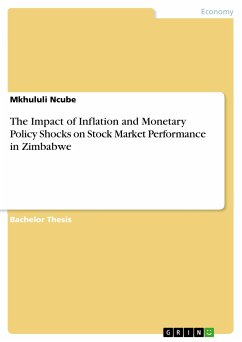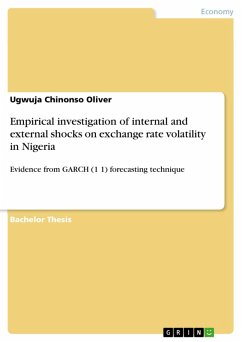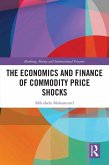Bachelor Thesis from the year 2023 in the subject Economics - Finance, grade: Distinction, National University of Science & Technology Zimbabwe (Finance), language: English, abstract: This study examines the impact of inflation and monetary policy shocks on stock market performance in Zimbabwe from 2000 to 2022. The study analyzes the relationship between different variables' regression using data obtained from the Zimbabwe Stock Exchange (ZSE) returns, inflation rates obtained from the Zimbabwe National Statistics Agency (ZIMSTAT), and interest rates obtained from the Reserve Bank of Zimbabwe. In this regression, ZSE returns are the dependent variable while inflation and interest rates are the independent variables. The research findings suggest that inflation has a negative impact, while monetary policy shocks have a positive impact on stock market performance in Zimbabwe. The study finds that inflation has a significant and persistent negative effect on stock market returns, with a one standard deviation shock in inflation leading to a significant decline in stock market returns. Moreover, the study identifies that monetary policy shocks, such as changes in interest rates, have a significant impact on stock market returns, but the effect is less pronounced compared to inflation in Zimbabwe. Furthermore, the study examines the transmission channels through which monetary policy shocks affect the stock market in Zimbabwe. The results suggest that changes in interest rates affect the stock market mainly through their impact on inflation expectations and exchange rates. This highlights the importance of considering both monetary and macroeconomic factors when analyzing the impact of monetary policy on the stock market in Zimbabwe. The study concludes that high inflation rates and frequent monetary policy interventions have a detrimental effect on stock market performance in Zimbabwe. The findings of this research are relevant to investors, policymakers, and analysts who are interested in understanding the relationship between inflation, monetary policy, and stock market performance in Zimbabwe. The study also analyzed the impact of GDP and exchange rate as control variables on stock market performance. The results suggested that changes in exchange rates have a negative impact on stock market returns GDP have a negative impact. The joint impact of inflation and monetary policy shocks was also found to be significant, indicating that both variables affect stock returns.
Dieser Download kann aus rechtlichen Gründen nur mit Rechnungsadresse in A, B, BG, CY, CZ, D, DK, EW, E, FIN, F, GR, HR, H, IRL, I, LT, L, LR, M, NL, PL, P, R, S, SLO, SK ausgeliefert werden.









